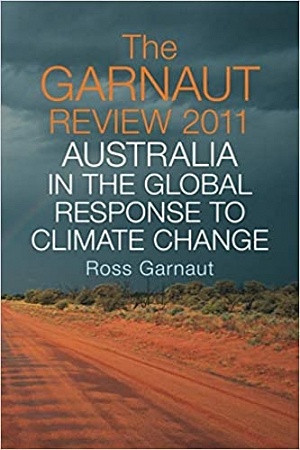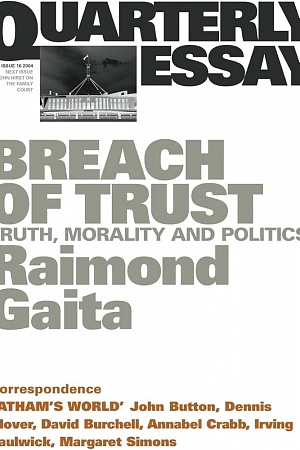Goodbye To All That?: On the failure of neo-liberalism and the urgency of change
Black Inc., $32.95 pb, 278 pp
Alive and kicking
It may be far too early to begin writing obituaries for neo-liberalism; as with Mark Twain, reports of its demise constitute an exaggeration. With the growing critique of neo-liberalism, in which our own prime minister has joined, there is a pervasive assumption that it is something of an aberration, an errant change of course in the development of capitalism. That assumption is, I suggest, erroneous; the thirty-year phenomenon to which we give the name neo-liberalism is in reality capitalism qua capitalism; neo-liberalism is really capitalism unleashed with minimal regard for its social consequences. There is also a second myth that needs to be challenged in the emerging critique of neo-liberalism: the Keynesian consensus did not merely outlive its usefulness; it was undermined and sabotaged by a combination of US policy failures and opportunistic vested interests.
Some four decades ago, the long postwar boom began to show signs of slowing, largely brought about by inflation. It has become commonplace to blame government spending and the welfare state, but the greatest contributor to inflation in the late 1960s and early 1970s was US spending on the Vietnam War, which had created an unsustainable burden not just for the US economy, but for the world. The United States effectively printed money to bankroll the war; it was excessive money growth by the Federal Reserve that ignited the fires of inflation. That was one aspect of the economic crisis of the 1970s. The other was the quadrupling of oil prices by most of the major oil exporters. Why did they do this? It was in reaction to US policy in the Middle East.
Continue reading for only $10 per month. Subscribe and gain full access to Australian Book Review. Already a subscriber? Sign in. If you need assistance, feel free to contact us.














Leave a comment
If you are an ABR subscriber, you will need to sign in to post a comment.
If you have forgotten your sign in details, or if you receive an error message when trying to submit your comment, please email your comment (and the name of the article to which it relates) to ABR Comments. We will review your comment and, subject to approval, we will post it under your name.
Please note that all comments must be approved by ABR and comply with our Terms & Conditions.